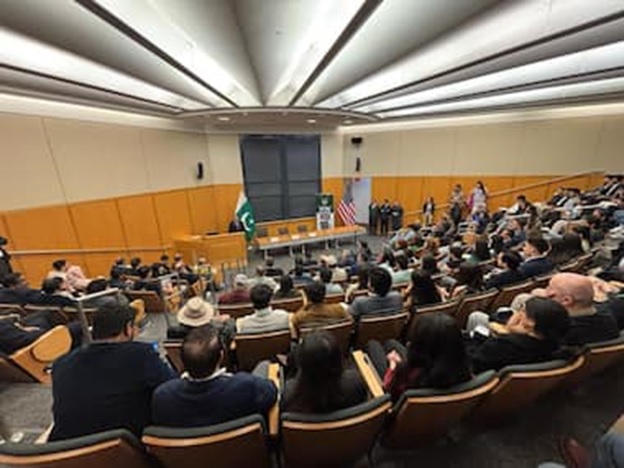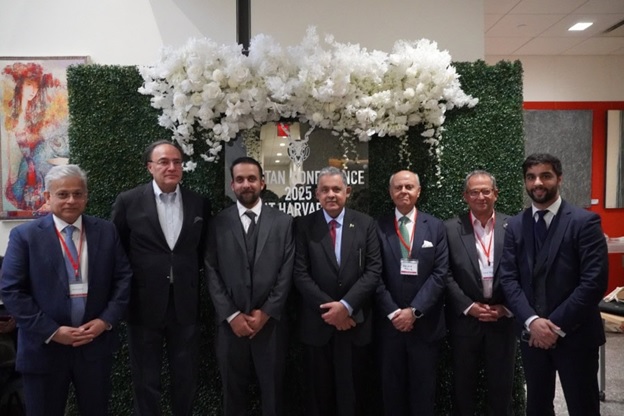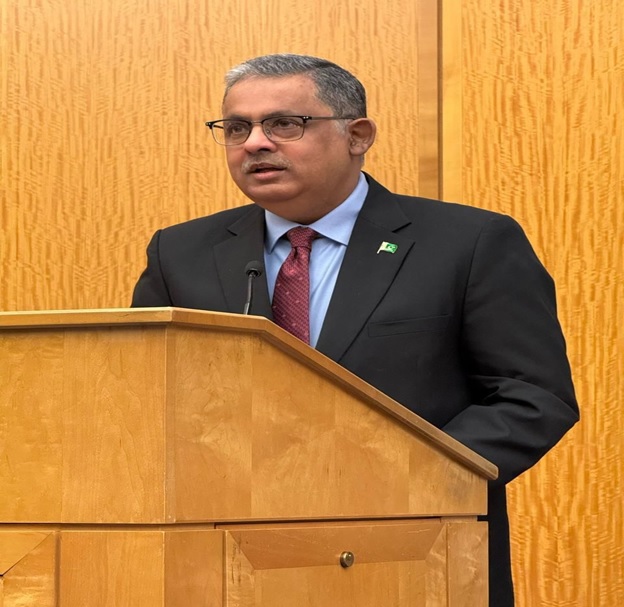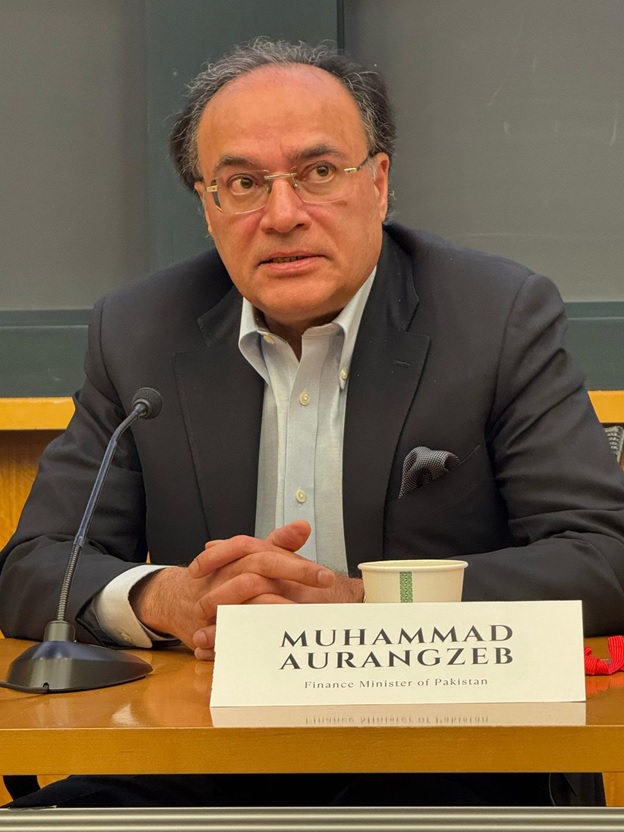




Harvard Conference Spotlights Pakistan’s Economic Potential, Positive Outlook, and Reform Agenda
By Elaine Pasquini

Washington, DC: The inaugural Harvard Pakistan Conference was held April 27, 2025, at Harvard University, Cambridge, Massachusetts. The flagship Conference brought together a distinguished gathering of policymakers, academics, entrepreneurs and students to deliberate on Pakistan’s economic prospects, governance reforms and evolving role in global affairs.
Pakistan’s Finance Minister Muhammad Aurangzeb, Ambassador of Pakistan to the United States Rizwan Saeed Sheikh and Consul General of Pakistan in New York Mr Aamer Ahmed Atozai attended the Conference.
In his opening remarks, Ambassador Sheikh expressed his appreciation for the participation of bright minds from various sectors who gathered in Cambridge to deliberate on Pakistan.
By virtue of size, population and strategic importance, Pakistan is too significant to be ignored, the ambassador emphasized. Stressing the need for serious, objective and constructive discussions on his country, the ambassador highlighted that in today’s interconnected world, developments anywhere have repercussions everywhere, making diplomacy more important than ever before. He underscored that diplomacy must be given a chance to address common challenges through collective efforts.
Referring to the “return of history,” Ambassador Sheikh pointed out that the evolving global landscape calls for greater cooperation among nations. In addition, he reaffirmed that Pakistan is a peaceful nation, and that its full attention is currently directed towards maximizing economic dividends and capitalizing on its strategic geographical location to foster growth and prosperity.
In his keynote address, Finance Minister Aurangzeb outlined Pakistan’s recent economic progress. He highlighted the successful stabilization of the economy, including the reduction of inflation to a historic low of 0.7 percent, a significant increase in foreign exchange reserves, stabilization of the national currency and achievement of a fiscal surplus.
Mr Aurangzeb emphasized that while stability has been achieved, Pakistan’s focus is now on long-term economic transformation to build a competitive, inclusive and sustainable economy.
During the question-and-answer session, the minister responded to queries on Pakistan’s fiscal management, reform initiatives and development priorities.
The Conference also featured insightful panel discussions on key themes including economic modernization, governance reforms, regional stability and climate resilience. Eminent speakers from diverse fields shared their perspectives on the opportunities and challenges facing Pakistan. A cultural segment was also organized, showcasing Pakistan’s rich and diverse heritage to the audience.
The event served, too, as an important platform to project Pakistan’s economic potential, reform agenda and positive outlook to a global audience. It provided an opportunity to strengthen Pakistan’s engagement with international academic and policy institutions and to promote the country’s narrative of resilience, opportunity and forward-looking progress.
(Elaine Pasquini is a freelance journalist. Her reports appear in the Washington Report on Middle East Affairs and Nuze.Ink.)

